The Namaqua Metamorphic Complex forms the western end of the Namaqua-Natal orogenic belt (see the bizarre granitoids of Natal
here). These rocks were formed during the formation of the supercontinent Rodinia which was assembled roughly 1.1 to 1.0 billion years ago. This metamorphic belt reveals the guts of a collisional orogen. If we were to wait for a few hundred million years, the Himalaya would likely look just like the Namaqua complex.
Having visited many of the classic orogenic belts around the world, one of the main things the Namaqua belt has to offer is spectacular outcrop. I mean, world class, one hundred percent the best outcrop I have ever seen! No trees, no moss, no buildings. In fact, I challenge you to show me an orogenic belt that has better and more complete exposure than in southern Namibia. The catch however is most of the region is covered with colluvium and other Holocene bits.
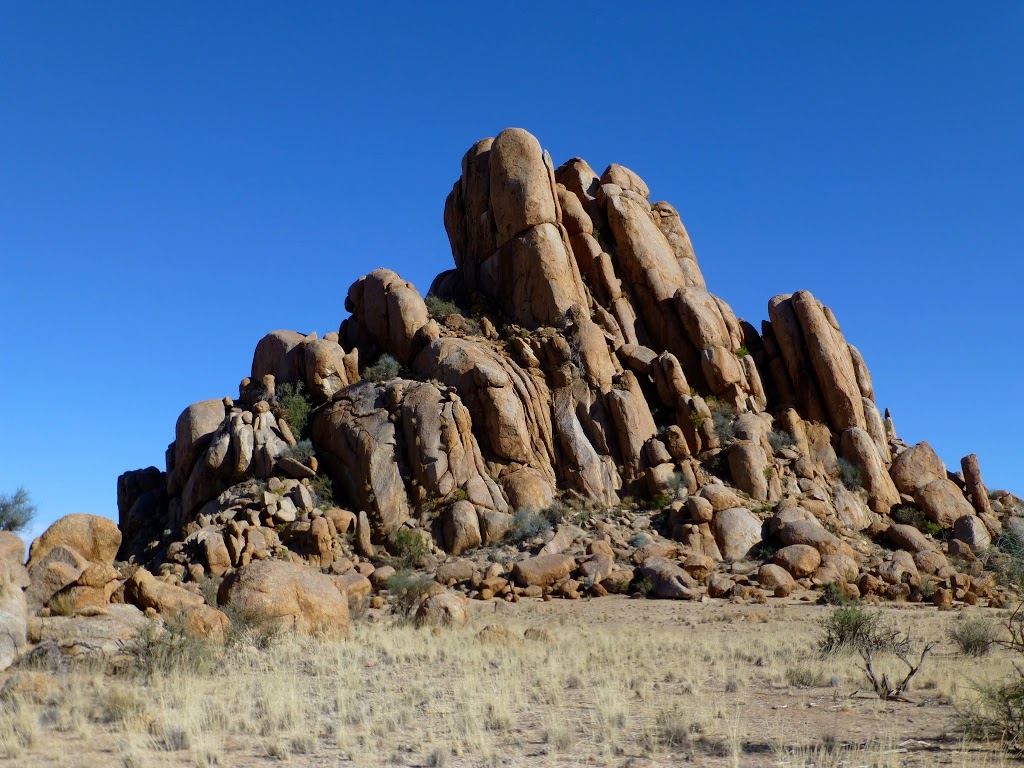 |
| Granite sentinel. Did I say the outcrop was spectacular. |
The Konip mafic complex. Never have I seen a place where the relationships are so “in your face”!
See video of the Konip below.
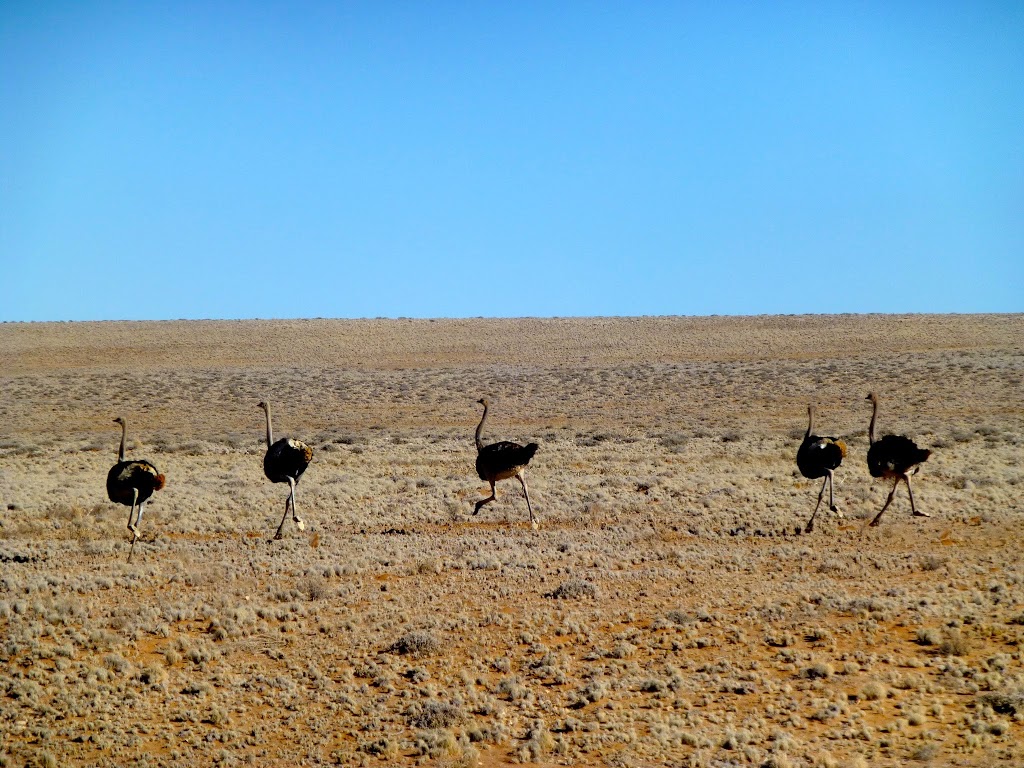 |
| and where no outcrop exists, there is just vast stretches of nothingness … and ostriches. |
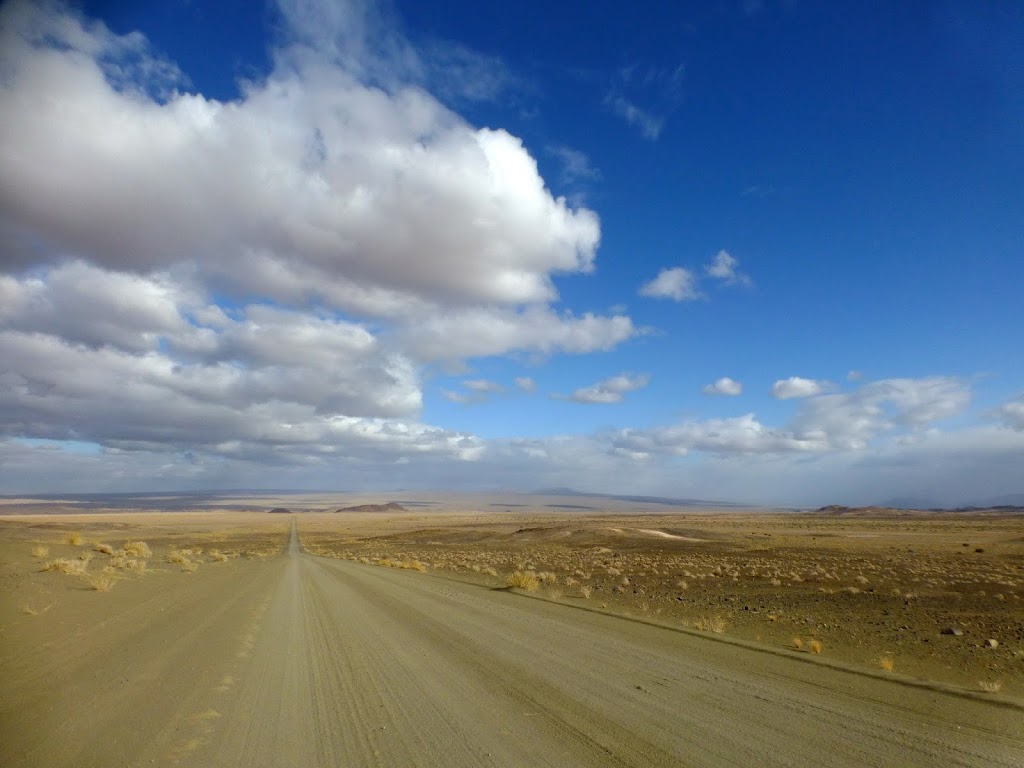 |
| More nothing. Often, I would drive an hour between outcrops. |
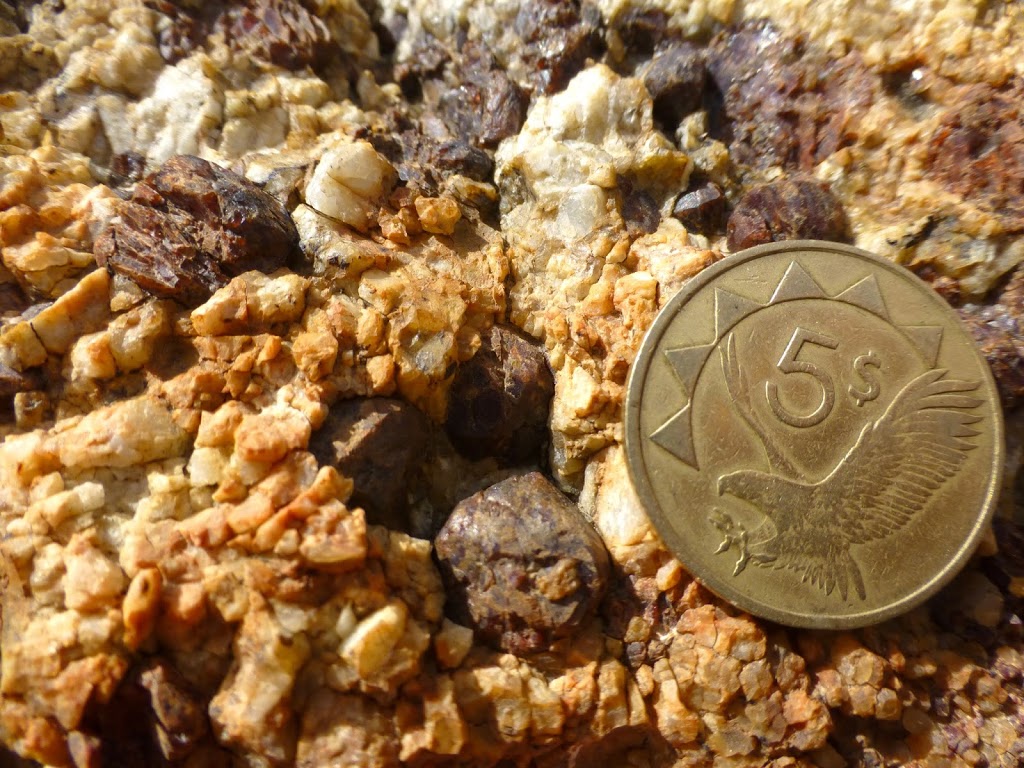 |
| But when you would come across outcrop. It was always spectacular! |
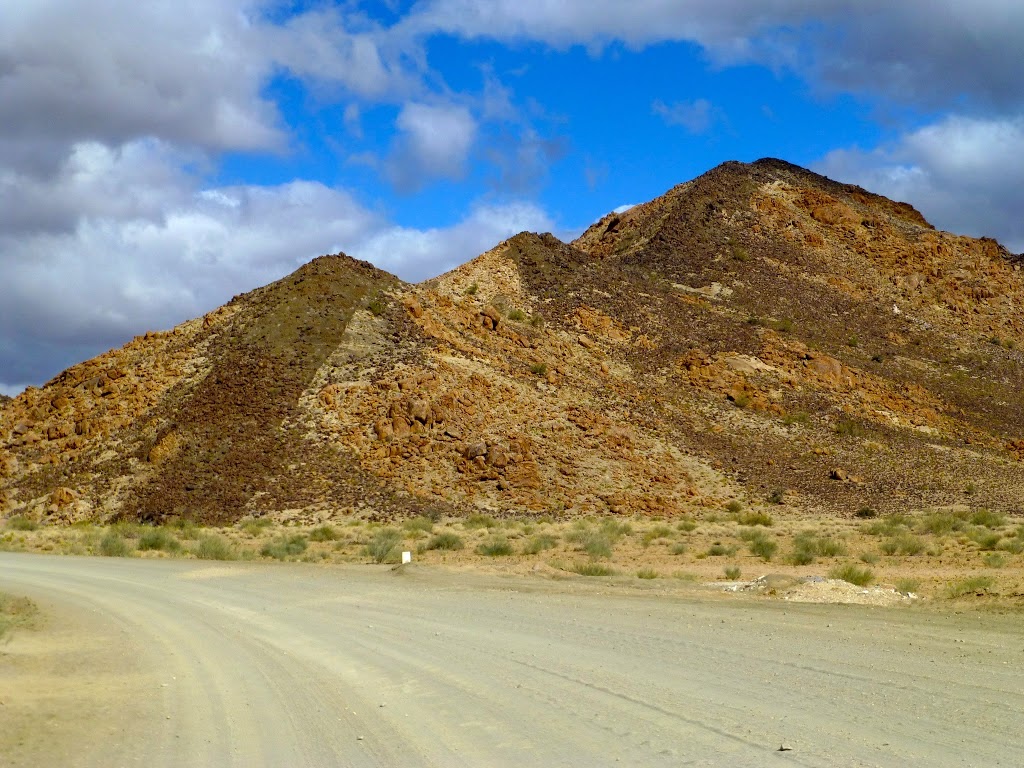 |
| A dike that even a blind person could map! |
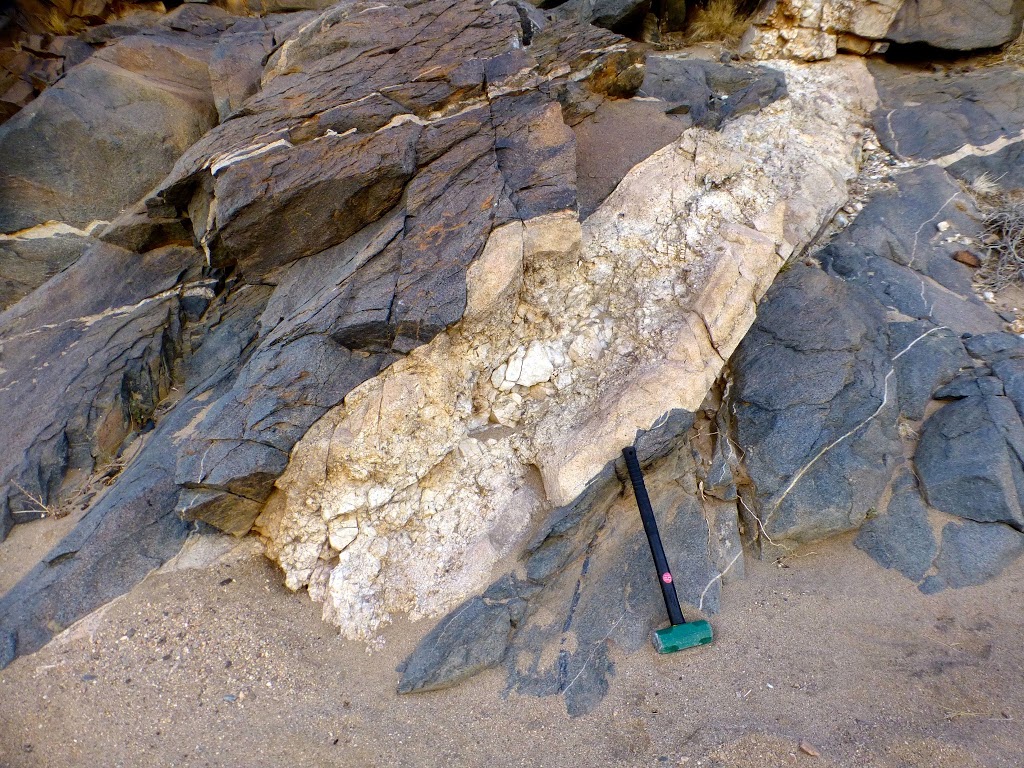 |
| Beautiful dike with pegmatite center and fine-grained chilled margins. |
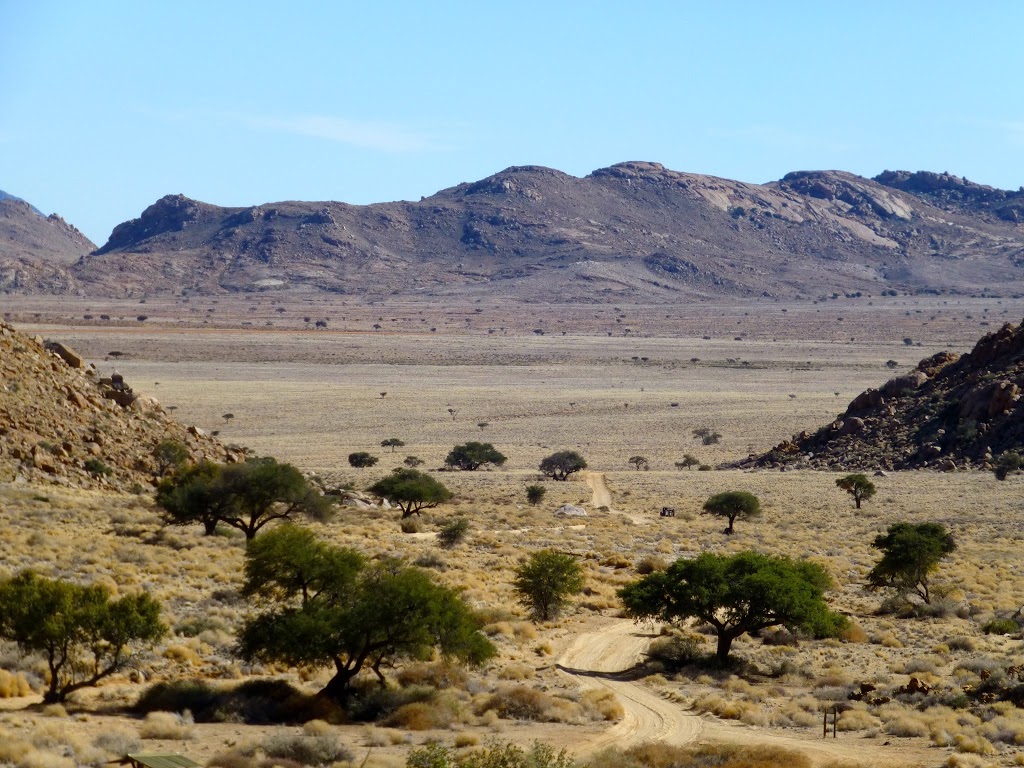 |
| Acacia trees |
On top of the Namaqua Metamorphic Complex is an incredibly thick succession of Neoproterozoic and Phanerozoic rocks. This succession is displayed beautifully in Fish River Gorge: the world’s second largest canyon.
 |
| Fish River Gorge |
 |
| The Dicker Willem Carbonatite “Inselberg” or island mountain. |
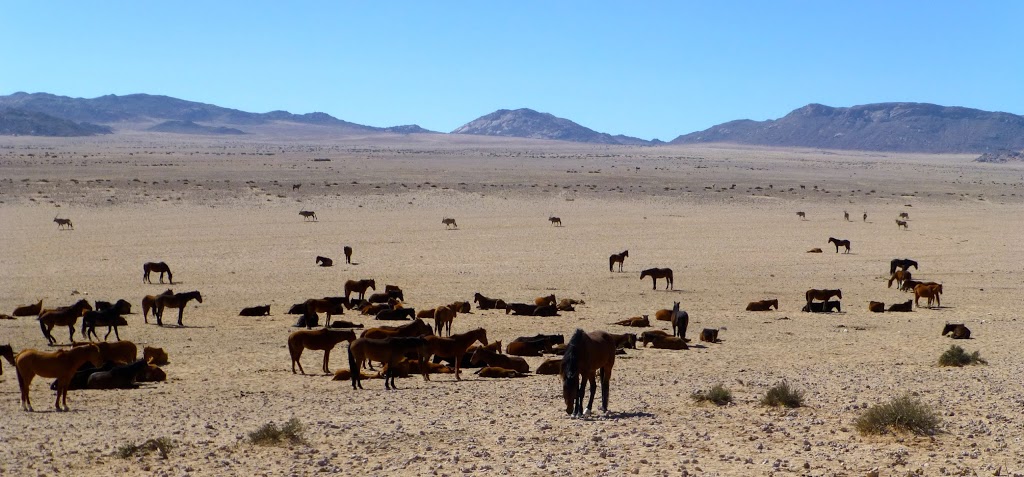 |
| Wild Horses |
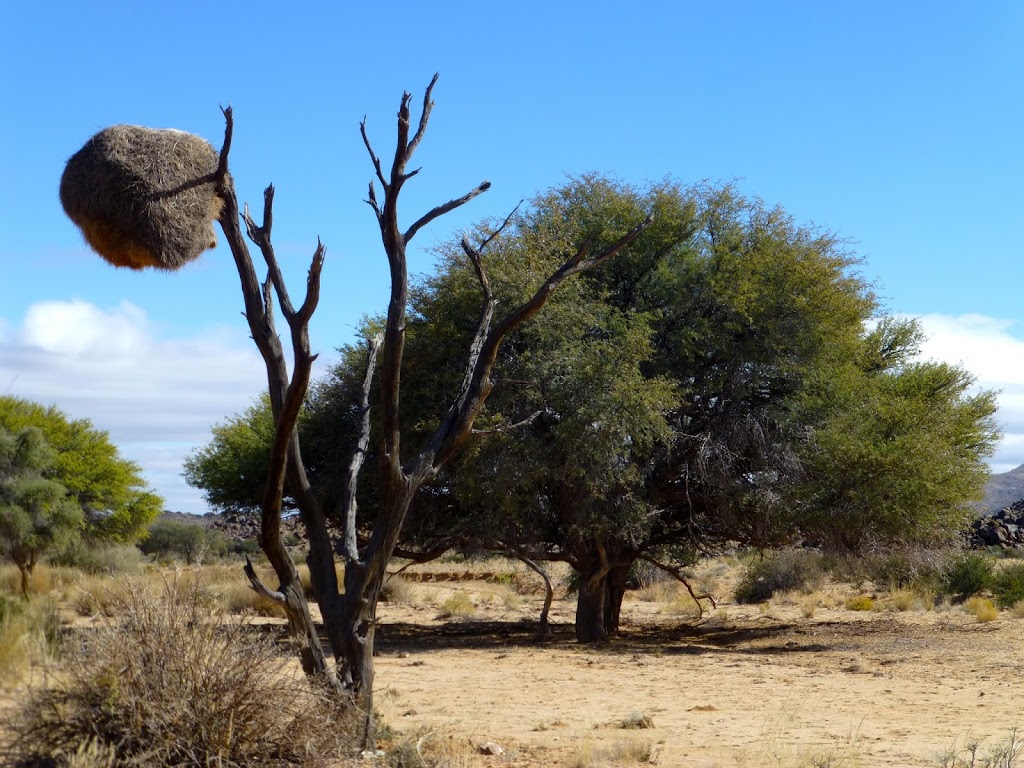 |
| Acacia and sociable weaver’s nest |
My adventures at the Konip mafic complex:
 This work is licensed under a Creative Commons Attribution-NonCommercial-ShareAlike 4.0 International License.
This work is licensed under a Creative Commons Attribution-NonCommercial-ShareAlike 4.0 International License.











![]() This work is licensed under a Creative Commons Attribution-NonCommercial-ShareAlike 4.0 International License.
This work is licensed under a Creative Commons Attribution-NonCommercial-ShareAlike 4.0 International License.